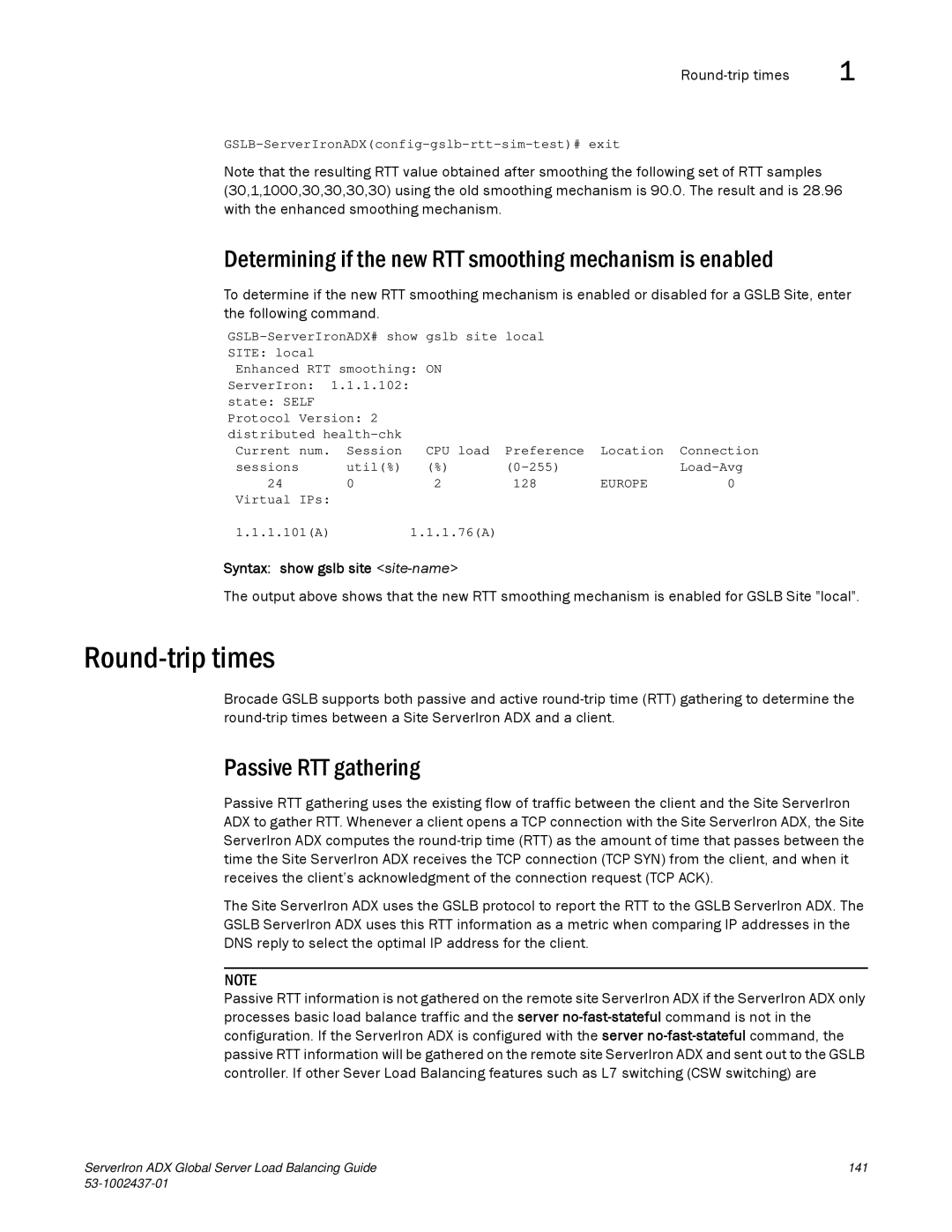| 1 |
Note that the resulting RTT value obtained after smoothing the following set of RTT samples (30,1,1000,30,30,30,30) using the old smoothing mechanism is 90.0. The result and is 28.96 with the enhanced smoothing mechanism.
Determining if the new RTT smoothing mechanism is enabled
To determine if the new RTT smoothing mechanism is enabled or disabled for a GSLB Site, enter the following command.
|
| ||||
SITE: local |
|
|
|
|
|
Enhanced RTT smoothing: ON |
|
|
| ||
ServerIron: | 1.1.1.102: |
|
|
|
|
state: SELF |
|
|
|
|
|
Protocol Version: 2 |
|
|
|
| |
distributed | CPU load | Preference | Location | Connection | |
Current num. | Session | ||||
sessions | util(%) | (%) | EUROPE | ||
24 | 0 | 2 | 128 | 0 | |
Virtual IPs: |
|
|
|
|
|
1.1.1.101(A) |
| 1.1.1.76(A) |
|
|
|
Syntax: show gslb site <site-name>
The output above shows that the new RTT smoothing mechanism is enabled for GSLB Site "local".
Round-trip times
Brocade GSLB supports both passive and active
Passive RTT gathering
Passive RTT gathering uses the existing flow of traffic between the client and the Site ServerIron ADX to gather RTT. Whenever a client opens a TCP connection with the Site ServerIron ADX, the Site ServerIron ADX computes the
The Site ServerIron ADX uses the GSLB protocol to report the RTT to the GSLB ServerIron ADX. The GSLB ServerIron ADX uses this RTT information as a metric when comparing IP addresses in the DNS reply to select the optimal IP address for the client.
NOTE
Passive RTT information is not gathered on the remote site ServerIron ADX if the ServerIron ADX only processes basic load balance traffic and the server
ServerIron ADX Global Server Load Balancing Guide | 141 |
|
